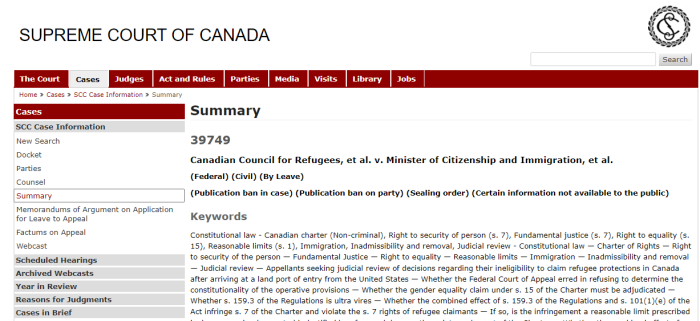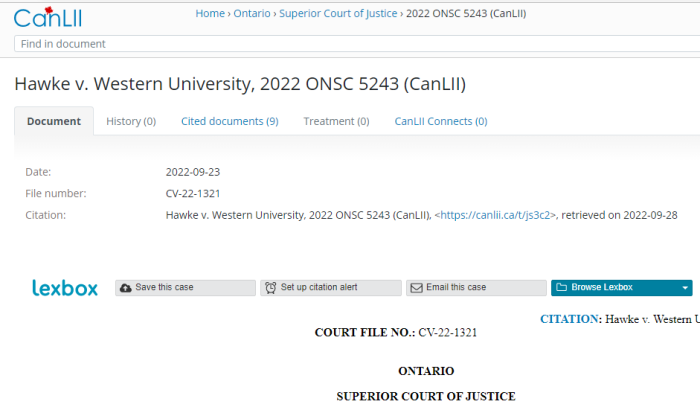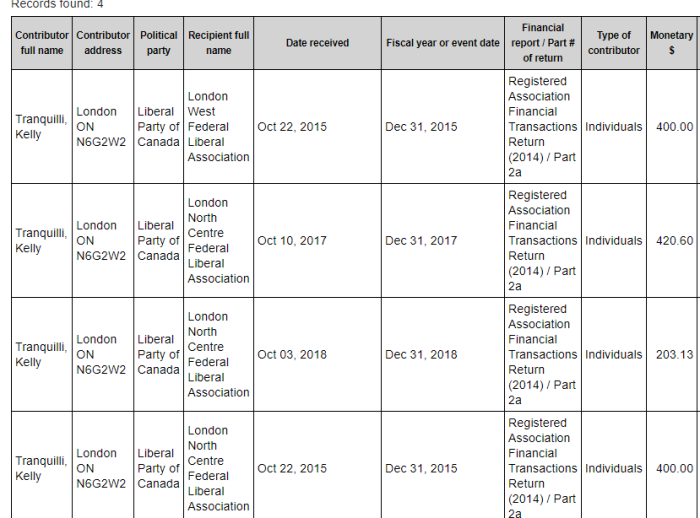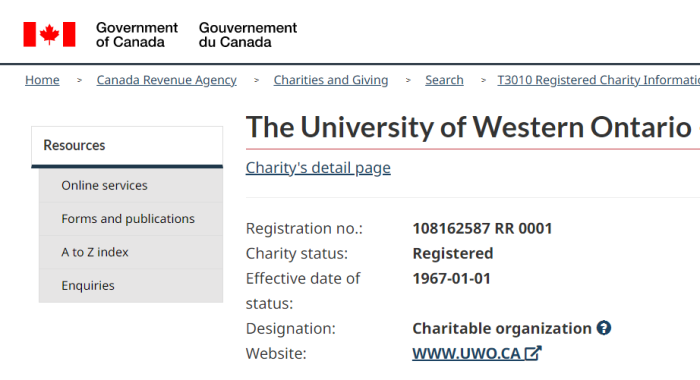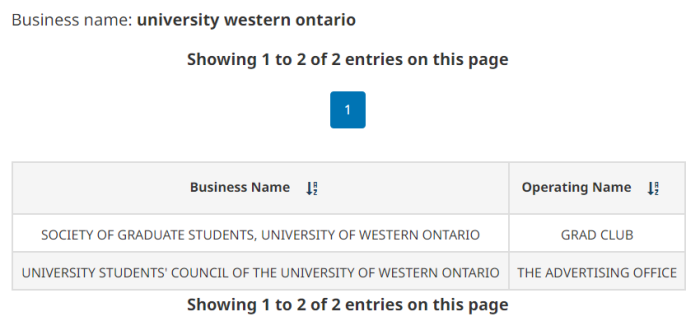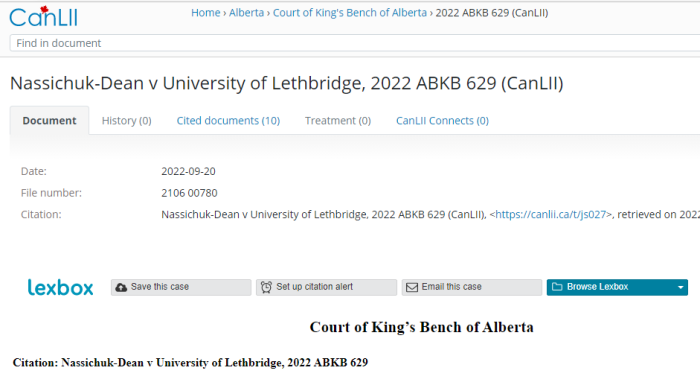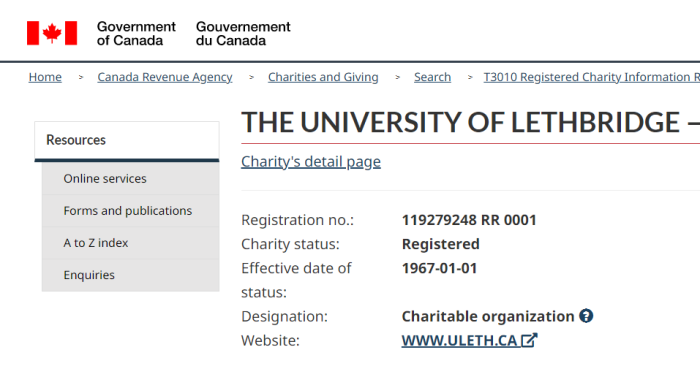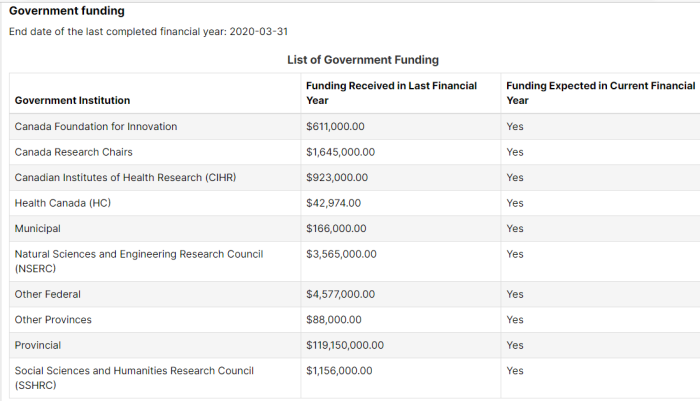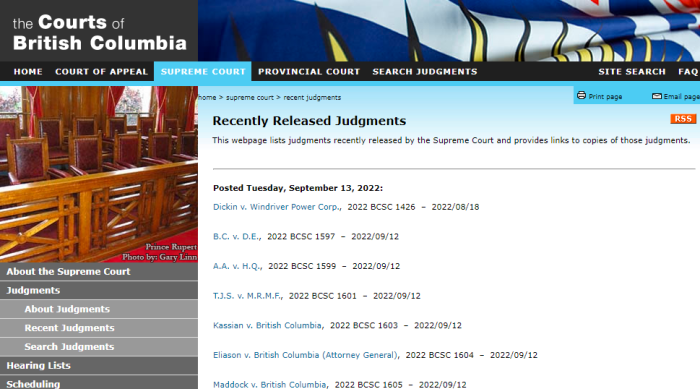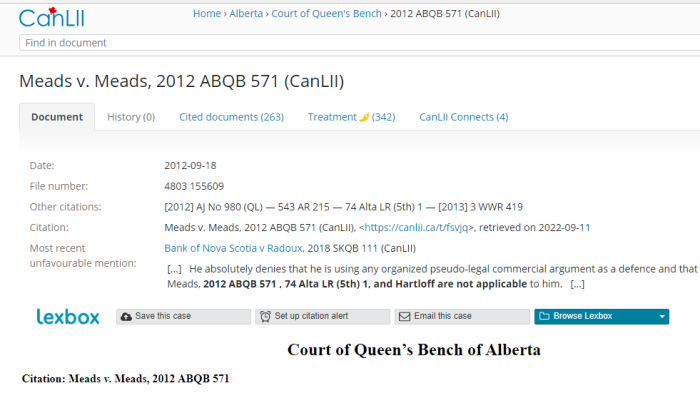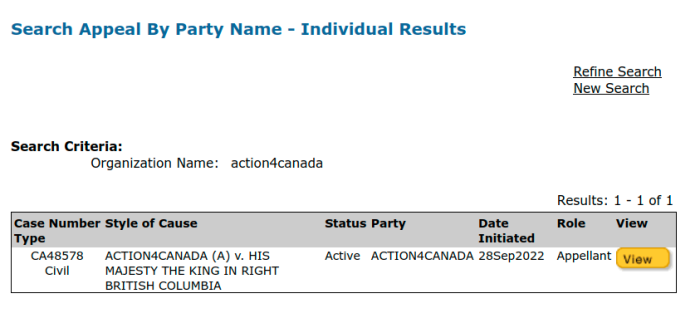
There are times when people really need to cut their losses. However, it seems that not everyone is taking that advice.
With the specific case at hand, it appears that Justice Ross’ quite reasonable decision has not been heeded. Instead of fixing the defects in the previous pleadings, the Plaintiffs are going to appeal.
It’s not clear to what extent there has been collaboration among all the parties. Was this a joint decision, or a unilateral one? Still, this is a very bad move, and we’ll get into why.
This site long ago predicted NOCC would get struck out
August 17th, 2021, the Notice of Civil Claim (NOCC) was filed.
August 31st, 2021, this site wrote that the NOCC was fatally defective, riddled with serious and basic errors, didn’t follow the Rules of Civil Procedure, and would never make it to Trial.
September 7th, 2021, Rocco Galati sued this site, and everyone “directly or indirectly associated” for $7 million. He also demanded that anyone “directly or indirectly associated” be banned from posting on the internet again, presumably on any subject. Although there were allegations of racism and anti-Semitism, the main issue was the harsh and detailed critiques and reviews of his various anti-lockdown lawsuits. Guess the truth hurts.
May 31st, 2022, the Application to Strike was finally heard. The Defendants attempted to get the case thrown out without leave to amend. This was on the grounds that the NOCC was so incomprehensible, that it was impossible to answer it.
August 29th, 2022, Justice Ross strikes the NOCC in its entirety, for a litany of defects. Being too long (prolix) was just one issue. However, the Court did allow for the NOCC to be amended and refiled, if it were done properly.
September 28th, 2022, a Notice of Appeal is served, challenging portions of the August ruling. Instead of properly drafting the NOCC, it appears the next move is to just appeal.
Plaintiffs are bailing, as they see the writing on the wall
An observant person will notice there are less Appellants than what might be expected. People are catching on. Amy Muranetz and Federico Fuoco both filed Notices of Discontinuance. And they’re not alone. In fact, several names are missing from the Notice of Appeal.
Appellants listed:
- Action4Canada
- Linda Morken
- Gary Morken
- Jane Doe #1
- Brian Edgar
- Jane Doe #2
- Ilona Zink
- Valerie Ann Foley
- Pastor Randy Beatty
- Michael Martinz
- Melissa Anne Neubauer
- Jane Doe #3
Plaintiffs who have since left:
- Kimberly Woolman
- The Estate of Jaqueline Woolman
- Amy Muranetz
- Federico Fuoco
- Fire Productions Limited
- F2 Productions Incorporated
- Makhan S. Parhar
- North Delta Real Hot Yoga Limited
In fairness, one of the Plaintiffs had passed away prior to the May 31st hearing. Still, it’s not a sign of confidence that this will go ahead.
People are realizing that the NOCC, filed in August 2021, was complete garbage. There’s no way to spin this as some sort of victory, hard as they try. Consequently, many don’t want to face financial devastation with the cost awards that are coming.
Notice of Appeal asks for things Appellate Court can’t grant
These are the grounds of appeal that are listed:
The grounds of appeal are as follows:
(a) That the Learned motions judge erred, in law, and jurisprudence with respect to Justice Ross’ ruling on declaratory and other relief at paragraphs 52 to 55 and Declarations at paragraph 56 to 58;
(b) That the Learned judge erred, in law, contrary to the Supreme Court of Canada jurisprudence on the test to be applied on a motion to dismiss/strike;
(c) That the Learned motions judge erred, in law, in ruling sufficient facts were not pleaded to support the causes of action advanced;
(d) That the Learned motions judge erred, in law, in usurping the function of the trial judge, and making determinations of fact, mixed fact and law, on the basis of bare pleading(s);
(e) The award of costs to the Defendants in circumstances where no costs should have been awarded, or an order of costs in the cause should have been awarded in that the results of the motion were split;
(f) Such further and other grounds as counsel may advise and this Honourable Court permit
To start with the obvious one, the Notice alleges that Justice Ross erred in determining that certain topics were outside of his authority. Sounds reasonable, until you see what this actually refers to.
[52] The defendants submit that the NOCC pleads to a number of claims that are improper in a civil action. In part, the defendants point to the following elements of the NOCC as inappropriate:
.
a) alleging criminal conduct;
.
b) seeking a declaration that the preponderance of the scientific community is of the view that masks are ineffective in preventing transmission;
.
c) seeking a declaration that the motive and execution of the COVID-19 prevention measures by the World Health Organization are not related to a bona fide “pandemic”;
.
d) seeking a declaration that administering medical treatment without informed consent constitutes experimental medical treatment which is contrary to the Nuremberg Code, the Helsinki Declaration and is a crime against humanity under the Criminal Code of Canada;
.
e) seeking a declaration that the unjustified, irrational, and arbitrary decisions of which businesses would remain open, and which would close, as being “essential”, or not, was designed and implemented to favour mega-corporations and to de facto put most small businesses out of business; and
.
f) seeking a declaration that the measures of masking, social distancing, PCR testing, and lockdowns are not scientifically based, and are based on a false and fraudulent use of the PCR test.
Among the improper claims, the NOCC had wanted a CIVIL Court Judge to make adjudications on criminal conduct, crimes against humanity, the Helsinki Declaration, the Nuremberg Code, and to determine what “the science” shall be.
The plain fact is that the B.C. Supreme Court has no authority to do any of this, so this had to be struck. The B.C. Court of Appeal isn’t going to reverse this. It’s time to face reality.
Additionally, these things appear repeatedly in the various Actions and Applications launched by the Constitutional Rights Centre. It would make all of them vulnerable to being struck.
Also worth mentioning: costs are largely discretionary. The Court of Appeals won’t (except in extremely rare cases) interfere with the decision. Considering there is no award yet — just the entitlement to one — it would be hard to challenge it.
BCCA isn’t going to overturn decision to strike NOCC
Keep in mind: Justice Ross didn’t throw the case out completely. Instead, he did something better. He told the Plaintiffs they could refile, if the NOCC were drafted properly. In other words, he gave the opportunity to fix it.
The NOCC was disorganized, cluttered, and contained plenty of irrelevant information. It went on lengthy tirades about non-parties such as Bill Gates and Klaus Schwab. None of this is appropriate, and it fell far short of what should be expected of veteran lawyers.
Granted, it will be a huge headache to rewrite a 400 page document. However, in the Application to Strike, one of the remedies sought by the Plaintiffs was the ability to rewrite the NOCC. The Court allowed it. Pretty hard to challenge an outcome that one sought.
Is Lawrence Wong actually involved in this case?
A bit off topic, but worth asking once again: is Lawrence Wong a part of this lawsuit? Or is his name listed just so there is a B.C. lawyer “on file”? Would be nice to know.
Will a Cross-Appeal be filed by the Respondents?
Most people have heard of an Appeal, but far fewer know what a Cross-Appeal is. Essentially, it’s like a counterclaim, but at the higher level.
Consider this: the Application to Strike was brought (largely) on the grounds that the NOCC was frivolous, vexatious, and an abuse of process. Defense lawyers asked that the case be struck without leave (or permission) to amend. However, the Court did allow an amended version to be filed.
Yes, this is speculation, but what if that provision were to get overturned by the BCCA? What if the BCCA decided that the Appeal was frivolous and abusive, and decided to not allow a rewrite of the original NOCC? A Panel could very easily rule that this entire matter isn’t being done for legitimate reasons, and block it altogether.
If Witten, Wedge and the other lawyers are going to be in front of the BCCA anyway, there’s really nothing to stop them from attempting such a tactic.
Consider Kulvinder Gill, Ashvinder Lamba as cautionary tale
Yes, this is a different case, but there are some striking parallels that need to be pointed out. It’s also a decision from 2022, so very recent.
One question that potential litigants always need to ask: what happens if I start a messy, prolonged, or expensive suit, and ultimately lose?
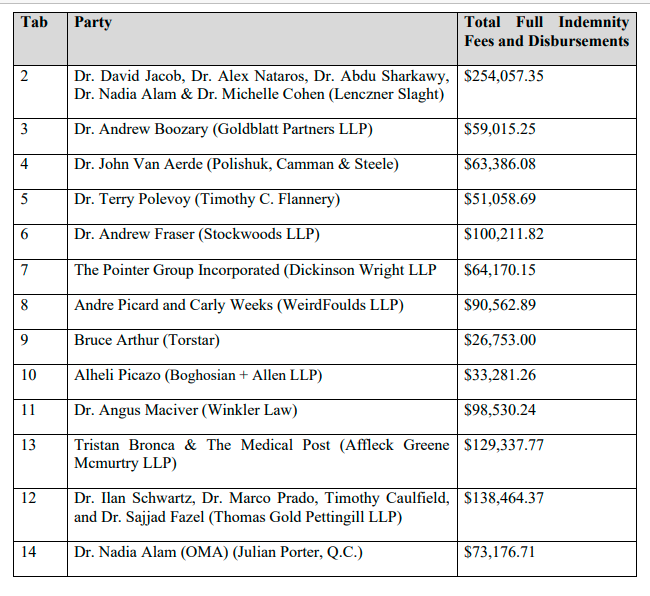
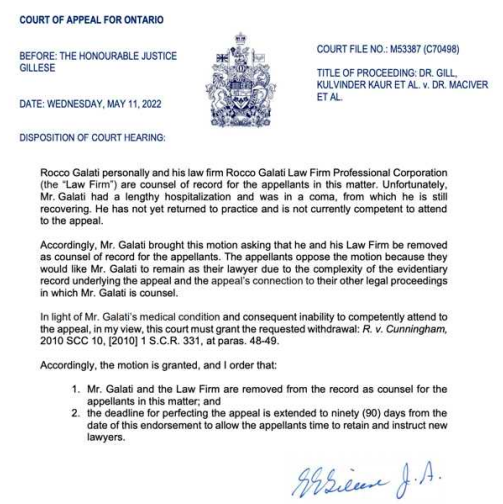
Regular readers will know that Kulvinder Gill and Ashvinder Lamba tried to sue 23 individuals and media outlets over mean words on Twitter. They sought $12.75 million in damages over juvenile comments. Predictably, the case was dismissed as a SLAPP, or a strategic lawsuit against public participation.
That ruling was inexplicably appealed. Shortly afterwards, Galati left, claiming to have a prolonged illness that made his participation impossible. Gill and Lamba apparently are still going ahead with this, and have retained new lawyers. They’ll have to face additional costs when the Appeal is ultimately dismissed, and it’s likely it will be. This could very well push the total bill over $1.5 million.
Gill also has another suit pending against the University of Ottawa. She sued the school, and one of their professors, Amir Attaran, for $7 million over 2 rude tweets. If they ever decide to file an anti-SLAPP Motion, Gill will be the hook for that as well.
Absurdly, many in the “freedom community” cheered at these efforts to forcibly shut down the free speech of people they disagreed with.
When successful with an anti-SLAPP Motion, Defendants are typically given costs on a full indemnity (or 100%) scale. Gill and Lamba are staring down $1.2 million at least. Given the damage they sought to inflict, the Defendants are expected to show no mercy. These 2 are facing bankruptcy, or at least being put on payment plans for the rest of their lives.
In an interesting turn of events, Gill and Lamba have since sued Galati and Samantha Coomara (his assistant). It would be nice to know how that turns eventually out.
If the Action4Canada Plaintiffs don’t want to go down this same path, consider getting out. Remember, it’s not the lawyers who are stuck with the 6 and 7 figure bills. It’s the clients.
What exactly is the point of this Appeal?
The obvious question has to be asked: why is this happening?
The BCCA isn’t going to rule that the B.C. Supreme Court should preside over criminal matters, or crimes against humanity. It’s not going to rule that a disorganized and confusing case shouldn’t be rewritten. It’s not going to rule that a Judge can’t award a successful party costs.
Instead of drafting a proper NOCC, the decision is to file a baseless Appeal with zero prospect of success. The result will be (about) another year wasted, along with hundreds of thousands of dollars spent. None of this will get the Plaintiffs closer to the relief they seek.
And to address comments from Action4Canada, (archive here):
For some reason Canuck Law, The Western Standard and Castanet are consistently working to put the worst possible spin on the facts of A4C’s case and to disparage Rocco, Tanya Gaw and Action4Canada. It appears they are on a mission to create doubt and distrust in the public’s eye by providing twisted versions of the truth and claiming that Action4Canada lacks integrity and transparency. Nothing could be further from the truth.
It is also interesting that none of these “Independent” media outlets have ever reported on Action4Canada’s campaigns and tireless work in providing Canadians, at no charge, with resources that are effectively protecting their children, their jobs, their right to travel, their bodily autonomy and so much more.
Their style of reporting doesn’t serve anybody well and brings into question whose side they are really on.
Real independents are on no one’s side.
A journalist or reporter should have one commitment: to show the truth. Anything less than that means that they are shilling for a particular group.
And the truth is that this case (and many related ones) are written so poorly that they have zero prospect of ever getting to Trial. They have been covered in extensive detail, with specific references to the Rules of Civil Procedure for Ontario, B.C. and Federally.
Does revealing this information cut into the money that donors are willing to pay? Absolutely it does. But then, how “independent” are journalists who gloss over or ignore these obvious defects?
If someone chooses to sue another in their private lives, that is their business. However, the moment that public donations are sought, it becomes a reportable case. Considering that Action4Canada is still asking for money, it’s fair game.
When someone tries to destroy this site (or anyone, really) for simply telling the truth, don’t expect any sympathy or favourable coverage of the ongoing grifting.
ACTION4CANADA BCSC DOCUMENTS:
(1) A4C BCSC – Notice Of Civil Claim
(2) A4C BCSC – Response to Civil Claim (Health Authority Defendants)
(3) A4C BCSC – Response to Civil Claim (Provincial Defendants)
(4) A4C BCSC – Affidavit No 1 of Rebecca Hill
(5) A4C BCSC – Notice of Application (AG and RCMP applies to strike)
(6) A4C BCSC – Notice of Application (Provincial Defendants applies to strike)
(7) A4C BCSC – Notice of Application (Translink applies to strike)
(8) A4C BCSC – Application Response (Health Authority Defendants consent to strike)
(9) A4C BCSC – Application Response (BC Ferries consents to strike)
(10) A4C BCSC – Application Response (AG and RCMP consent to Prov. strike application)
(11) A4C BCSC – Application Response (Translink consents to HA Defendants strike application)
(12) A4C BCSC – Application Response (Translink consents to Prov. strike application)
(13) A4C BCSC – Affidavit No 2 of Rebecca Hill
(14) A4C BCSC – Application Record (to strike)
(15) A4C BCSC – Application Response (all plaintiffs)
(16) A4C BCSC – Amended Application Response (all plaintiffs)
(17) A4C BCSC – Reasons For Striking NOCC In Its Entirety
(18) A4C BCSC – Order striking pleadings
(19) A4C BCSC – Order striking pleading in its entirety with costs payable forthwith
(20) A4C BCSC – Appointment to assess bill of costs for Kwok and Translink
(21) A4C BCSC – Notice of Discontinuance (Kimberly Woolman & Estate of Jaqueline Woolman)
(22) A4C BCSC – Notice of Discontinuance (Amy Muranetz)
(23) A4C BCSC – Notice of Discontinuance (Federico Fuoco & Fire Productions Ltd.)
(24) A4C Notice Of Appeal September 28 2022
(A) Gill & Lamba v. Maciver decision CV-20-652918-0000 – 24 Feb 2022
(B) Gill & Lamba Notice of Appeal and Appellants’ Certificate
(C) Gill & Lamba Appeal – Notice of Intention to Dismiss Appeal for Delay
Like this:
Like Loading...
